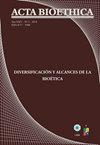Barriers to Informed Refusal in Korea
IF 0.3
4区 哲学
Q4 ETHICS
引用次数: 0
Abstract
: In South Korea, the legal and cultural environment keeps terminally ill patients from making an informed refusal to a treatment the discontinuation of which can cause death. Act on Decisions on Life-Sustaining Treatment for Patients in Hospice and Palliative Care or at the End of Life allows several forms of informed refusal, but it is not enough. There is no explicit guarantee, at least under this law, of the right to refuse a treatment given during a period that has not reached an end-of-life process prescribed in the law. Dori, which the family of a terminal patient feels obligated to follow, makes them commit to doing what they believe is right as a family member without asking the patient’s intention. Because it reduces the family’s motivation to have a difficult talk about death and end-of-life with the patient, the patient is deprived of an opportunity to make a decision based on accurate information. In making a decision for the patient while patient is excluded, the family often ends up choosing a safe decision that puts physical survival first. In conclusion, the culture and the culturally influenced law are making it impractical for terminal patients to make an informed refusal.韩国的知情拒绝障碍
在韩国,法律和文化环境使绝症患者无法在知情的情况下拒绝可能导致死亡的治疗。《关于临终关怀和姑息治疗或临终病人维持生命治疗决定的法案》允许几种形式的知情拒绝,但这还不够。至少在这项法律下,没有明确保障拒绝在未达到法律规定的生命终了期间接受治疗的权利。临终病人的家属觉得自己有义务遵循Dori,它让他们承诺做他们认为作为家庭成员是正确的事情,而不问病人的意图。因为它降低了家属与病人艰难地谈论死亡和临终的动机,病人被剥夺了根据准确信息做出决定的机会。在病人被排除在外的情况下为病人做决定,家属往往最终会选择一个安全的决定,把身体生存放在第一位。总之,文化和受文化影响的法律使得晚期患者做出知情拒绝是不切实际的。
本文章由计算机程序翻译,如有差异,请以英文原文为准。
求助全文
约1分钟内获得全文
求助全文
来源期刊

Acta Bioethica
Bioethical Issues-
CiteScore
0.40
自引率
0.00%
发文量
22
审稿时长
12 weeks
期刊介绍:
Acta Bioethica is a biannual publication by the Interdisciplinary Center for Studies in Bioethics of the University of Chile (ISSN 0717-5906, press edition, y 1726-569-X, electronic edition), which publishes in three languages: Spanish, English and Portuguese.
Indexed in Science Citation Index (SCI), Scopus, Lilacs, SciELO y Latindex, and in database from several Institutions; it constitutes a pluralistic source of perspectives and an important tribune which accepts the contributions of authors compromised with the interdisciplinary study of ethical determinants and consequences of techno scientific research.
 求助内容:
求助内容: 应助结果提醒方式:
应助结果提醒方式:


